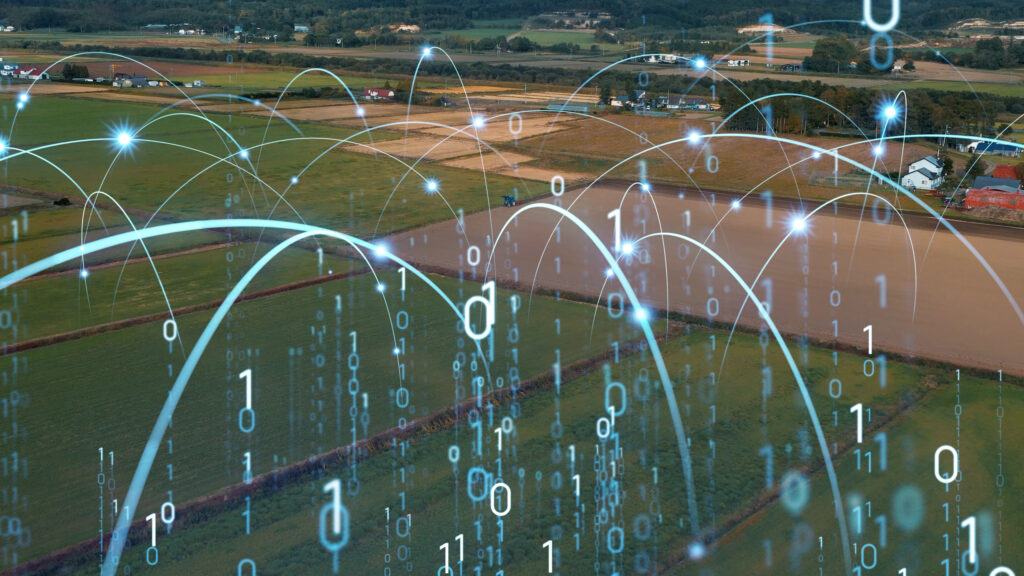Opinion: How to keep control of your data in a digital world
 © metamorworks/iStockphoto
© metamorworks/iStockphoto For many UK farmers, the idea of sharing their farm data with larger companies and the wider agri-food supply chain feels like a huge risk.
The perception is that this valuable information will be used against them, whether to drive down prices or gain a competitive edge.
The fear is understandable. Farmers are the data originators, and the thought of a tech giant or a processor using their data to extract greater value without fair reward is a genuine concern.
See also: Advice on basic cybersecurity steps for farm businesses
About the author

Julian Gairdner is managing director of Communagator, which operates the Farm Data Safe governance scheme on behalf of Farm Data Principles.
Here, he explains why data management is key to a high-tech, digital future.
But what is the other side of the coin? When data is protected and hoarded in silos, the farmer misses out on the chance to gain collective insights.
So perhaps the real risk lies in staying isolated, unable to leverage the power of shared intelligence to secure a long-term place in a modern supply chain.
Whichever way you look at it, there has to be a role for strong data governance.
Governance should be a facilitator of data flow, not an obstruction.
But it should be there to provide the checks and balances to ensure data “actors” are operating reasonably and responsibly.
Certification
The anxiety around data sharing is precisely why schemes such as Farm Data Principle’s Farm Data Safe certification are so crucial.
It has been designed to ensure transparency and trust.
The scheme’s rules state that the farmer, as the data originator, owns and controls their data.
Obligations are placed on certifying organisations for transparency around how the data will be used, who will access it, and for what purpose.
And the scheme demands an explanation about the value and benefit of sharing data for the parties involved.
Adopting these principles isn’t just a nice-to-have.
It should be a non-negotiable step farmers expect in building a trusted data ecosystem, not only to protect their individual interests, but also to avoid the agri-food sector stagnating in a gravy of disconnected data silos.
The demand for data has seen a huge increase in the past couple of years, driven by the growing pressure on the food industry to demonstrate its environmental performance.
Supply chain partners, retailers, and even consumers are demanding greater transparency about where their food comes from and its carbon (and nature) footprint.
Farmers are at the heart of this. Their data, along with other sources of information such as remote-sensed satellite data, holds the key to achieving accurate carbon accounting, soil carbon sequestration, biodiversity metrics and more.
Artificial intelligence
A huge change in just this year has been the rise of artificial intelligence (AI), particularly the availability and use of consumer AI tools such as ChatGPT, Gemini and others.
The recent Trump state visit and accompanying technology deal only serves to emphasise the massive role AI is going to have for us all.
AI thrives on large, high-quality datasets. And when applied to agricultural data, it will uncover insights that a human could never see, from predicting disease outbreaks to optimising supply chains.
Scarily (perhaps), it can even create missing data to fill the gaps. The potential is enormous.
But AI can also be used negatively, which is why clarification over how a farmer’s data can be used is so important – not to stop innovation, but to manage it.
What was once a slow, steady change is becoming a rapid digital transformation.
Farmers who do not engage with this revolution may find themselves at a disadvantage, unable to access the tools, markets, and financial incentives that the data-driven world offers.
But each and every one of them will want the assurance of solid, transparent principles and agreements, to ensure this digital future is built to protect and promote their interests, not damage them.
